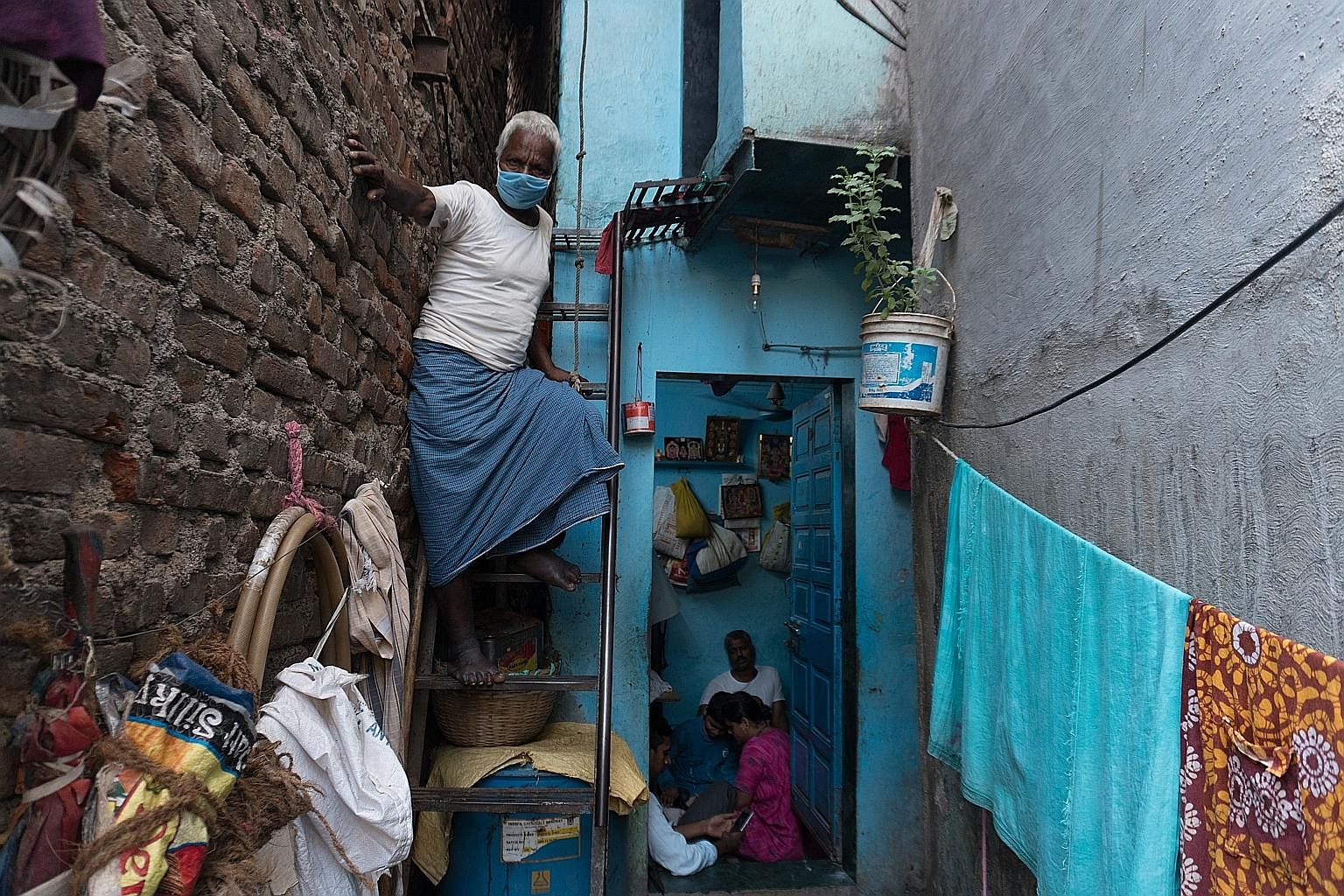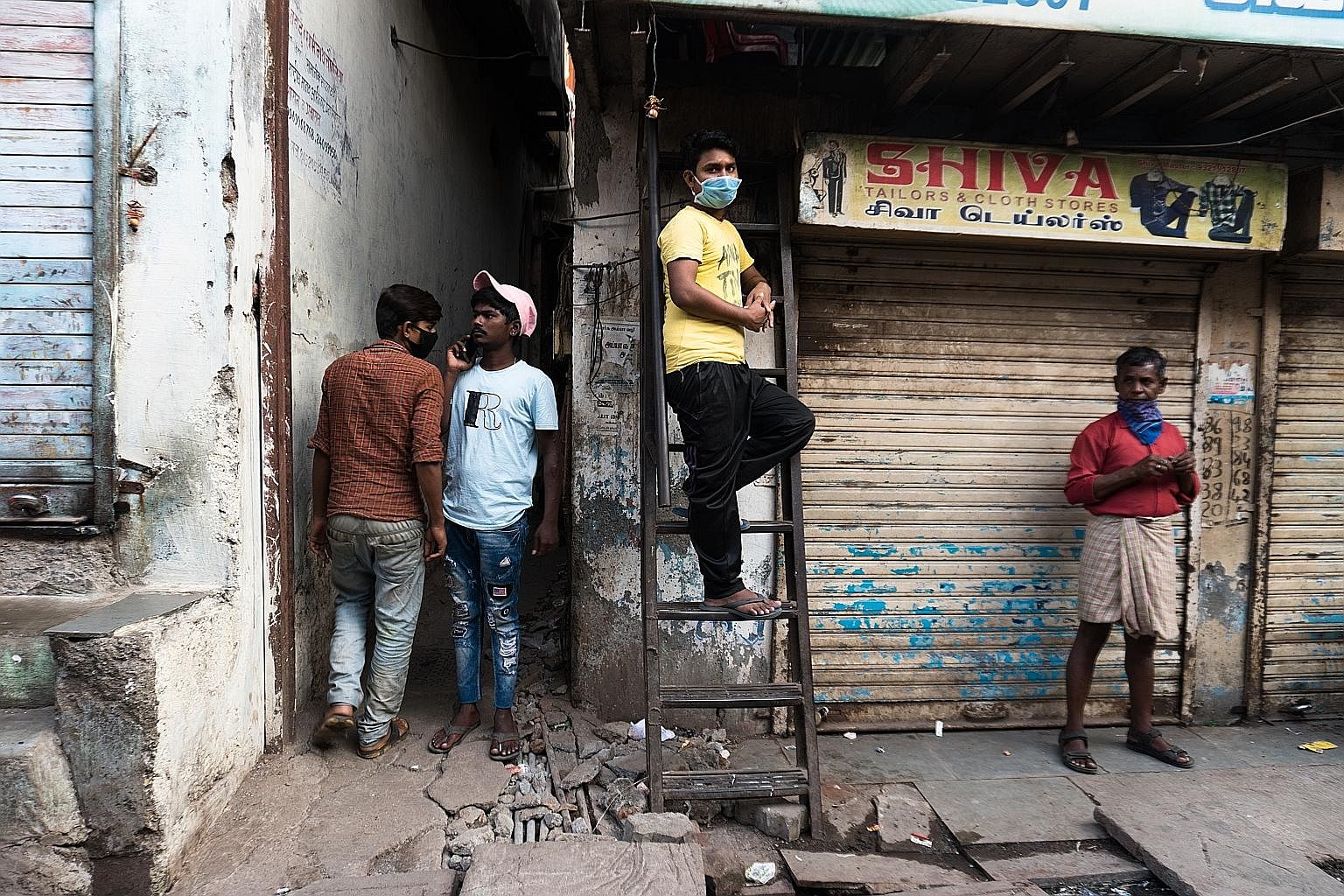COVID-19 SPECIAL
Fears of virus spread in Indian slum
Poor sanitation and health infrastructure making it hard to prevent infections
Sign up now: Get insights on Asia's fast-moving developments
On March 28, a garment shop owner from Dharavi, a densely-populated slum in Mumbai, was admitted to a nearby government hospital with signs of pneumonia.
"He didn't respond well to treatment. Two days later, they performed a Covid-19 test," the 56-year-old's son told this reporter over the phone.
When the result came back 48 hours later, it was positive. The man died on the same day.
Within a day, two more Covid-19 cases were detected in Dharavi. And on April 4, another two cases were recorded in the slum: a woman who died in a building next to where the garment seller lived, and a 48-year-old man from another colony in Dharavi.
Officials in the Indian city are still ascertaining the link between the woman and the garment seller.
A sanitation worker who used to work in Dharavi, but lived elsewhere, has also been infected.
The development set off alarm bells in the Brihanmumbai Municipal Corporation's office in G-North ward, where Dharavi falls. Municipal officials and the police swooped in to sanitise and cordon off the gated colony - an upscale, redeveloped part of the slum.
Across the road from the gated colony lies a warren of houses and shanties that accounts for most of the Dharavi sprawl, home to about 600,000 people. Dharavi's population is squeezed into a 2.1 sq km area, making it one of the world's most densely populated areas.
Since nearly half of Mumbai's population lives in informal settlements or slums, public health experts think it will take responses on many fronts to contain the epidemic, with India's under-equipped public health infrastructure a cause for concern.
Mr Kiran Dighavkar, the assistant commissioner of G-North ward, said they were still tracing and testing the high-risk contacts of the infected people, and have taken steps to deal with any exigency.
A sports complex in Dharavi has been repurposed into a 300-bed quarantine building, and a 50-bed hospital was put on alert. But the facilities might not suffice if the epidemic starts spreading in Dharavi.
The majority of houses in Dharavi are smaller than 150 sq ft and are home to six occupants on average. Social distancing is a luxury here.
With shoulder-wide alleys, and houses situated cheek-by-jowl, Covid-19 can literally spread like the plague. Poor sanitation and shared toilets only compound the problem.
Mr Arjun Kokne, who runs a food cart selling mutton-pao, lives in a 125 sq ft house with his wife and three children in Dhorwada, Dharavi. His business, which brought in 400 rupees (S$7.50) a day, has been closed because of a nationwide lockdown due to the coronavirus.

The majority of houses in Dharavi are smaller than 150 sq ft and are home to six occupants on average. Social distancing is a luxury here.
PHOTO: SHONE SATHEESH FOR THE STRAITS TIMES
"We use the public toilet, which is shared with hundreds of others," he told The Straits Times. Only a few families in Dharavi can afford in-house toilets. The majority use the community bath and toilets built by the municipality.
On March 22, in a bid to halt the spreading Covid-19 pandemic, Prime Minister Narendra Modi imposed the lockdown, which disrupted the supply chains of essential commodities.
Many feel the move, meant to promote social distancing in an attempt to "flatten the curve", has come as a blow to the country's working class population.
Madam Bharti Machhigar, a homemaker who buys grains from the government-owned Public Distribution System shop, said: "The regular grocer is charging more right now, so I'm getting government rations."
Prices are about 30 to 50 per cent higher now.
Dharavi is home to thousands of migrant labourers who work in the local pottery, garment, and leather factories. The lockdown has robbed them of their daily income. Some, like Ms Reshma Yadav from Nepal, who worked in a garment shop, ran out of food in two days. A local union leader for sanitation workers, Mr Shankar Kunchikorwe, pitched in and gave food grains and pulses to her and 80 other families.
"I can't count the number of families and workers in every lane who are without work. How many can we provide for?" Mr Kunchikorwe told this reporter.
In the gated colony across the road, the death of a resident came as a reality check to some. Mr Charlie Anthony, the secretary of the Baliga Nagar Slum Rehabilitation Authority colony, lives in the building where the garment shop owner died.

Poor sanitation and shared toilets compound the problem of maintaining hygiene standards
PHOTO: SHONE SATHEESH FOR THE STRAITS TIMES
"Before this, many of us did not take the pandemic that seriously, though we were taking precautions," he said.
The measures included sanitising common property, wearing masks and gloves, and social distancing.
His worry is that the carrier or source of the infection is still at large. The deceased person did not have a travel history.
Mr Anthony also feared that the virus could have crossed over the road and into the slum.
"People from the slum used to work here. If it starts spreading in Dharavi, there will be no turning back," he told The Straits Times.
On the slum side of Dharavi, residents have been stocking up on essential items from the few shops that remain open.
But hand sanitisers are too expensive for most. "It's very expensive, costs 150 rupees a bottle. But what to do? I have three children in the house," Mr Kokne, the mutton-pao seller, said.
"These days I don't shake hands, don't meet anyone, I don't even say hi," he added. "If I get the virus, my children will also get it. That's my only fear."


